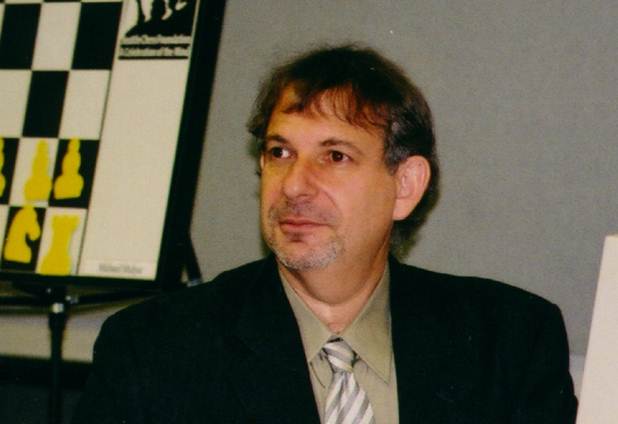
From writing and playing to consulting and teaching, International Master Jeremy Silman has explored many facets of chess. He has not only authored over 35 books and numerous articles, but has also won large tournaments such as the US Open and National Open. Furthermore, Silman has coached the US Junior National Chess team and has served as a chess consultant not only for the movie Harry Potter and the Sorcerer’s Stone, but also for popular TV shows such as Criminal Minds and Monk. We asked Mr. Silman questions ranging a wide variety of topics; take a look:
When did you officially decide to pursue chess as your career?
I learned how to play chess at 12. I knew I wanted to devote myself to the game at 15 since I viewed it as a wonderfully romantic profession, traveling the world and immersing myself in endless intellectual battles. The big payoff was winning a stunningly beautiful game since, to me, it was the same as creating true work of art.
What chess books helped you develop as a player?
There are more chess books than books about all the other sports and games combined! I won’t point out any single book, but I will say that finding a book about a chess hero (Capablanca, Alekhine, Fischer, Lasker, etc.) and reading about his life and studying his games is the best way to not only love the game, but also love the rich world of chess history.
What is one piece of advice you would give to a developing chess player?
Don’t look at a loss as a disaster, look at it as a learning experience.
In your opinion, what are the pros and cons with how dominant computers have become today?
Chess engines are very useful tools for chess professionals. However, they have turned into crutches for the masses, who delude themselves into thinking they are finding the computer’s moves. Thus, instead of helping, improper use of the machine stunts one’s growth. A chess engine can be of great help if it’s used properly (practicing specific endgame positions or having it test your opening repertoire), but few do.
What do you think are the benefits of learning chess as a child, whether they be educational or practical?
Chess teaches a child several things: how to think logically, that hard work is necessary if you want to achieve anything, and how to plan ahead.
Why is chess meaningful to you? In other words, what about chess has captivated you for so long?
As a child, you revel in the fact that you can beat adults. It’s a rush. As you get deeper into the game, you fall in love with the fact that it’s a mix of art, science, sport, and even psychology (it teaches you a lot about yourself). Chess is also meaningful in that chess players are multicultural; they come from every nation and every walk of life.
If you had to choose one person to play chess against, who would it be?
Emanuel Lasker, who held the World Championship for 27 years. He was an amazing man who was not only the world’s best chess player, but also a world-class mathematician and a philosopher.
We’d like to thank Jeremy Silman for talking to us and for his many contributions to chess nationally, and internationally. We wish him well in his future pursuits!